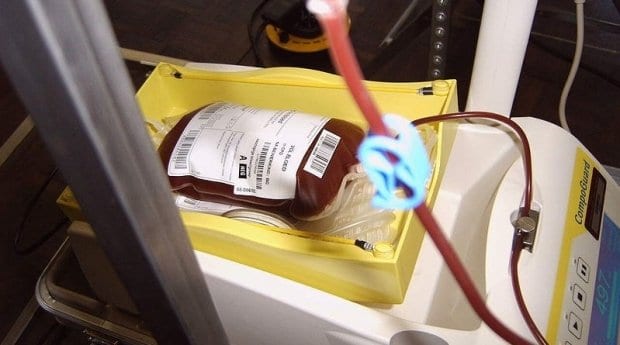The New Zealand Blood Service (NZBS) has accepted a recommendation to reduce the time HIV-negative gay and bisexual men must wait to give blood to one year after they were last sexually active, Radio New Zealand reports.
Currently, gay men are prohibited from donating blood for five years after they have been sexually active. Final approval of the proposed change, which would cover sex workers and people from countries with high rates of HIV, could occur by the end of the year.
“In considering changing the deferral for MSM to 12 months we have taken particular account of advances in donation testing and handling, such that errors have now been virtually eliminated from the system; new modelling studies that have identified the current risk of HIV in advanced Blood Services as almost entirely (95 percent) from window period infections; the reported experience of Australia which has had a 12-month deferral for more than 10 years and no identified transmissions of HIV or other relevant TTIs (transfusion-transmissible infections) and indications of no worse compliance; and the apparent high compliance with current deferral criteria in New Zealand,” the report to the NZBS states.
NZBS medical director Dr Peter Flanagan says a deferral period is still necessary even as detection methods have improved. “In the very early stages the virus may be present in the donation and it may not be detected by our test,” Radio New Zealand quotes Flanagan as saying. “Because of that, our most effective approach to assure ongoing safety is to combine that testing with specific deferrals of individuals who are at higher risk of acquiring the infection.”
The Rainbow Wellington advocacy group, however, feels the proposed change does not go far enough, saying it prefers a system where people can be assessed for risk on a case-by-case basis instead of a shortened waiting period.
Health Canada announced a long-awaited policy change last year, ending the lifetime ban on men who have had sex with men even once since 1977 and replacing it with a ban on donations from men who have had sex with another man in the last five years.
England, Scotland and Wales have a one-year deferral period, while South Africa has a six-month waiting time in place.
While the US, France and Northern Ireland still retain lifetime bans, others including Mexico, Chile, Uruguay, Italy, Poland, Spain and Thailand do not have bans on blood donations by gay men.


 Why you can trust Xtra
Why you can trust Xtra


